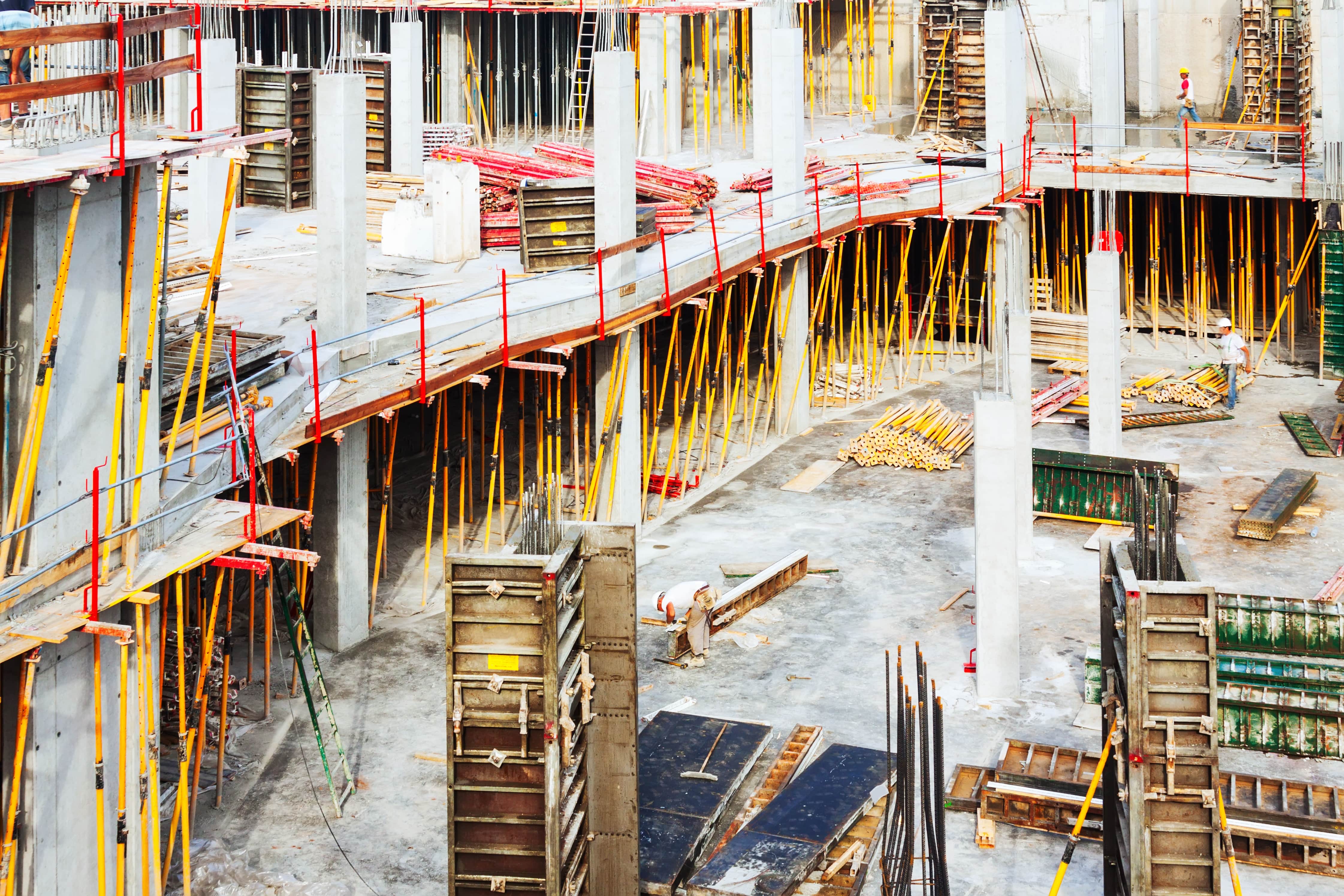How Do Professional Formwork Contractors Create Value in Construction?
November 26, 2024

Formwork contractors have professional expertise in constructing formwork plates on a construction site. Formwork must be placed on the site to carry its loads and loads of concrete. Are you trying to understand the importance of professional formwork contractors in construction? Are you willing to know how hiring professional formwork contractors can be beneficial? This article is for you. We will discuss the role of professional formwork contractors in the UK. We will also discuss how contractors can assess the needs of different types of formwork in construction. Let’s begin our discussion.
What is a formwork contractor?
A formwork contractor takes care of the installation of formworks on construction sites. The installation process of formworks involves professionalism and years of expertise. Professional contractors ensure the safe and secure installation of formwork on-site. Liquid concrete may leak through if there is a gap between formwork plates during installation. Metal formwork plates are to be maintained properly. Contractors regularly maintain the quality of formwork plates to offer you a solid concrete structure. With years of expertise, professional contractors can select different formwork types to construct a building.
Why are professional formwork contractors beneficial in concrete construction?
Professional formwork contractors are an irreplaceable part of the construction industry. They are experts in designing and installing formwork on a construction site to construct slabs, columns, foundations, and walls. Their expertise ensures that the formwork system is strong enough to carry the loads of the concrete. A reliable formwork contractor makes it easier to work with. They have expertise in all areas of construction - engineering, aesthetics, and safety regulations. If you work with a reliable, professional formwork or shuttering contractor, your work should progress smoothly.
What are the different types of formwork?
Formwork types are differentiated based on their materials. These are: Steel formwork, Aluminium formwork, Timber formwork, Plywood formwork, Plastic formwork. The five types of formworks are used in construction to build columns, slabs, foundations, and walls. With that being said, all of these formworks have advantages and disadvantages of their own.
Steel formwork
Steel formwork is the most durable of the five types and comprises thin steel plates. These thin plates are joined at the edges with the other plates to create a formwork system. Professional formwork contractors use nuts, bolts, and clamps to join them together. The initial cost of steel formwork is higher than that of timber or plywood formwork. However, steel formwork becomes economical after a long period of usage. Professional contractors use it to support heavy loads of concrete and construct columns, slabs, etc. Steel formwork supports curved or circular concrete structures. However, over time, steel plates can be damaged, making it difficult to use.
Aluminium formwork
Aluminum formwork is similar to steel formwork. Both are durable and can carry heavier loads of concrete. However, aluminum plates are light and can not carry much heavier weights. Their lightweight makes them easier to carry to the construction site. Professional formwork contractors can use aluminum shuttering plates as an alternative to steel or timber. The smooth surface of aluminum plates builds a smooth-looking outer surface of the concrete.
Timber formwork
It is the most traditional way of building a formwork system for construction. Timber is lightweight and can be carried to the construction site easily. Professional formwork contractors prefer to use timber to support lightweight construction members. Wood's benefit over steel is that the former is more flexible to use in construction. It can be resized to support concrete structures of different sizes and types. That said, professional contractors can not use timber for a long time. It is vulnerable to termites and water. More extended usage in construction results in its decay.
Plywood formwork
Plywood formwork is relatively stronger than timber. Thin sheets of plywood are compressed together with glue to make plywood. It is a lightweight formwork material supporting concrete columns, beams, and other structures. Similar to timber, plywood formwork may not be long-lasting. Professional contractors use plywood because it is cheaper and available everywhere. The cost of carrying heavy steel plates is saved if plywood is used. However, plywood formwork may not be suitable for large-scale and heavier concrete construction.
Plastic Formwork
The latest advancement is using acrylonitrile butadiene sterrene (ABS) panels in formwork. ABS panels are durable and lightweight, which makes them the perfect formwork material. Contractors use them in construction efficiently. It does not stick to the concrete, making it easier to remove. ABS panels have an interlocking design for easier installation. One downside is its relatively low load-carrying capacity.
The role of formwork contractors in utilising different types of formwork
Designing and installing a formwork system is easier if you work with a professional formwork contractor. They can determine specific formwork material to support the concrete members. Depending on the size and weight of the concrete member, the contractor can choose among steel, plywood, timber, or aluminum formwork.
Conclusion
You should hire a professional formwork contractor to install the formwork system. They can advise you on choosing a suitable material for your construction work. Steel formwork has the highest load-bearing capacity, while plastic formwork panels are easier to carry and install. At Formwork Contractors, we provide bespoke formwork solutions. Contact us today for a professional formwork service
Recent Blogs
- Timber vs. Steel vs. Plastic Formwork: Which Is Right for Your Project?
- Eco-Friendly Formwork Materials: Are They the Future of Construction?
- A Complete Guide to Slab Formwork: Types, Materials, and Best Practices
- Climbing Formwork: A Modern Invention For the Ease of Construction
- What are the Differences Between Formwork and Falsework?